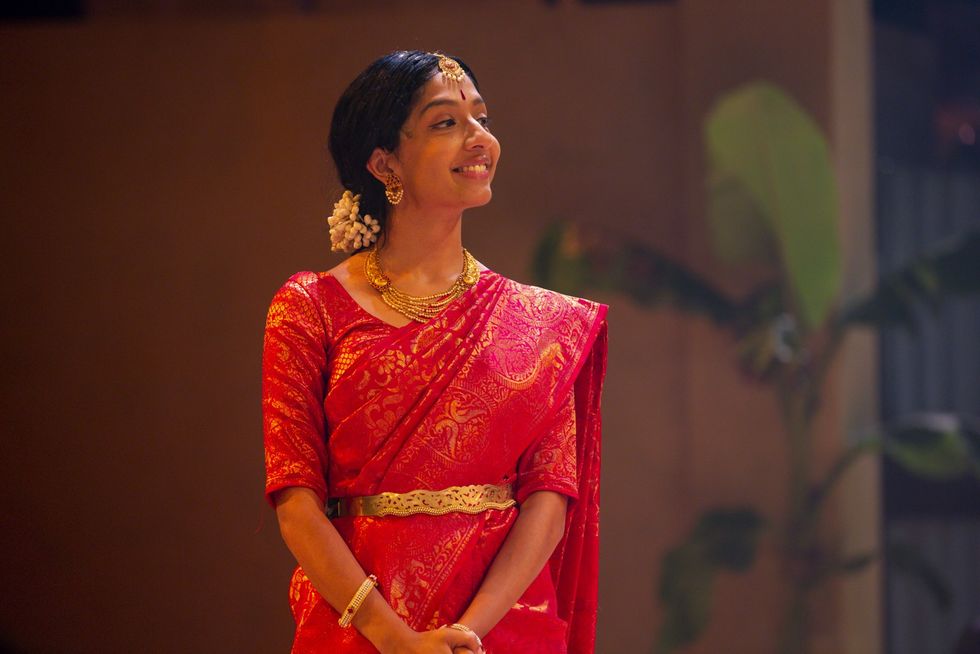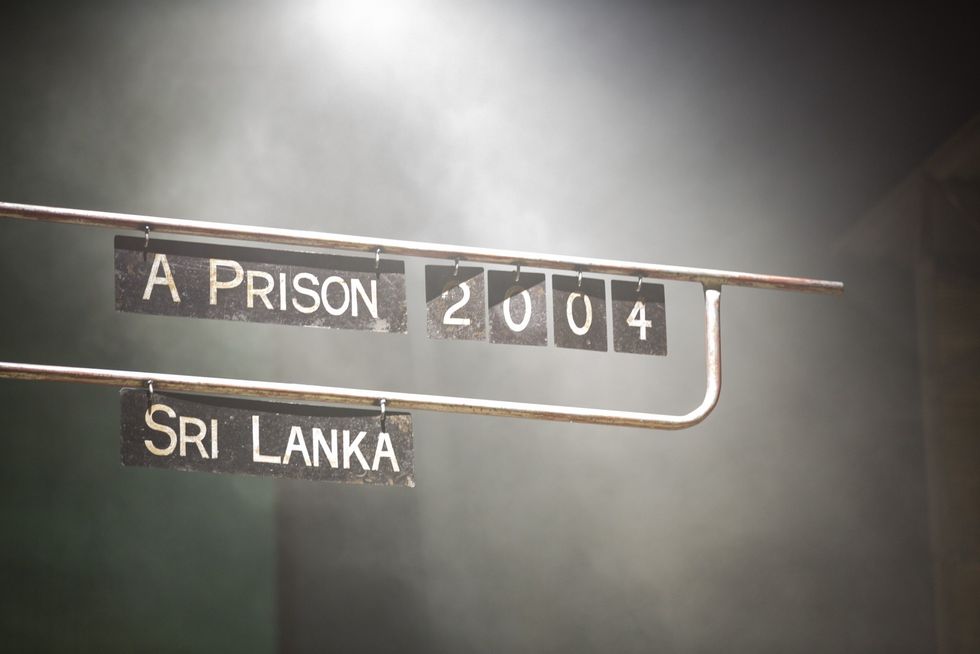An international theatre production about a family's journey through love, heartbreak, civil war, and migration touches down in UK in August for epic performances at Royal Lyceum in Edinburgh from August 8-14 and The Birmingham Rep from August 19-27.
The multi-generational play, Counting and Cracking, follows a Sri-Lankan Australian family over four generations from 1956 to 2004, as it tells a moving story of love, political strife, home, exile, breakup, and reunion. The deeply personal show featuring 19 performers from six different countries was researched, developed, and written across 10 years by S Shakthidharan, who is also an associate director.
His multi-layered story performed in English, Tamil, and Sinhalese (with live translation into English), already looks like being one of the most unique and powerful theatre events of the year. It adds to an interesting body of creative work across different mediums for him.
Eastern Eye caught up with the Australian storyteller with Sri Lankan heritage and Tamil ancestry to discuss writing, his award-winning theatre play and important lessons we can all learn from it.
What first connected you to writing?
I have always been fascinated by stories. Stories have the power to change how we think and feel about the world - and therefore how we behave. A good story can reflect the world back to us in all its glorious complexity and give us the space to deeply understand ourselves and each other. I began writing because I was seduced by these possibilities.
What led towards you writing this play?
I wrote Counting and Cracking to honour my elders and everyone in Sri Lanka who tried to halt my homeland’s descent into civil war. I wrote it to help kids talk to their parents and unlock the hidden universes inside them. I wrote it to unashamedly condemn the politics of division. I wrote it to give my community a chance to confront our shared past, to
heal, and find a way forward together.
Tell us about the play?
Counting and Cracking is the story of a son uncovering from his mother, her long held secrets of forbidden love and courage against oppression. It is a story of mathematics and courtship, of cricket and politics, of a box of ashes hidden under a bed for 21 years. In telling this one family’s story over four generations, it is also the story of two countries: Sri Lanka post-independence, and Australia as an immigrant nation.
How much of it is based on real incidents?
Counting and Cracking is ultimately a work of fiction. But everything in it is real. It is an epic mosaic drawn from the stuff of real life.

What inspired the interesting title?
It is a quote from my great-grandfather: “Democracy is the counting of heads within certain limits, and the cracking of heads beyond those limits.” And it’s a line in the play.
Did you learn anything new while writing it?
What didn’t I learn? I learnt that my great-grandfather was a politician as well as a mathematician. I learnt that my mother never spoke about Sri Lanka when I was growing up because she still hadn’t dealt with the pain of separating from her homeland. I learnt that stories can heal.
What is your favourite moment in the play?
In the final moments of the play time collapses. Geographical divides disappear. The arc of history bends towards a humble family just trying to reunite. No matter how many times I witness that moment, it still seems like a miracle to me that theatre can do something like that.
How much does it help that you have such a strong cast?
It is, of course, essential. They are not just brilliant actors, they believe in the purpose of the play in the particular act of storytelling we are undertaking. They come from all over the world, but they are unified.
How do you feel about the play being staged in Edinburgh and then Birmingham?
Very lucky. I’m so proud that this Sri Lankan and Australian story can grace the world’s stages. I can’t wait to share it with audiences in the UK, who I think understand the themes of
family, migration, unification, and division all too well - but perhaps have never seen a story quite like this one.
Who are you hoping connects with the story?
Anyone who has family secrets. Anyone who has had to leave their homeland. Anyone who has grown up not knowing their culture.
What are key lessons we can learn from this multi-generational story?
That as much as families can fight, they can also love. That there is no “them”, only “us”. That democracy is worth fighting for.

What can we expect next from you?
I am developing a trilogy of Sri Lankan-Australian works. One is another play in collaboration with Eamon Flack, at Belvoir in Australia at the end of this year, called The Jungle and the Sea. The third is a feature film called The Laugh of Lakshmi. I hope both works will travel to the UK at some point!
What inspires you as a writer?
Ordinary, quiet people who are flung into crises and become heroes. My community is full of people like this.
Why should we all watch the play?
I am not exaggerating when I say that this play should be impossible to put on. It took 10 years to write and four years to cast. It is a joyous, warm-hearted epic told by 19 performers six different countries. It feels like a miracle whenever we get to put it on. You should come to laugh and cry with us. To learn and heal with us. To be part of the miracle with us.
Counting and Cracking is being staged at The Royal Lyceum Theatre in Edinburgh as part of the Edinburgh International Festival from August 8-12 (www.lyceum.org.uk) and at The Birmingham Rep from August 19-27 (www.birmingham-rep.co.uk)






 Naeli and the secret song
Naeli and the secret song








 Jamie Lloyd’s Evita with Rachel Zegler set for Broadway after London triumphInstagram/
Jamie Lloyd’s Evita with Rachel Zegler set for Broadway after London triumphInstagram/
 A compelling premise, layered and unpredictable charactersAMG
A compelling premise, layered and unpredictable charactersAMG Anyone who enjoys a gripping story with a diverse cast and unexpected twistsHarperFiction
Anyone who enjoys a gripping story with a diverse cast and unexpected twistsHarperFiction
 The Story Teller by Ley Roberts
The Story Teller by Ley Roberts Summer Exhibition coordinator Farshid Moussavi, with Royal Academy director of exhibitions Andrea Tarsia in the background
Summer Exhibition coordinator Farshid Moussavi, with Royal Academy director of exhibitions Andrea Tarsia in the background An installation by Ryan Gander
An installation by Ryan Gander A sectional model of DY Patil University Centre of Excellence, Mumbai, by Spencer de Grey
A sectional model of DY Patil University Centre of Excellence, Mumbai, by Spencer de Grey Rituals and Identity and Theatre of Resistance by Arinjoy Sen
Rituals and Identity and Theatre of Resistance by Arinjoy Sen
 An explosive new play that fuses biting satire, history and heartfelt storytellingPleasance
An explosive new play that fuses biting satire, history and heartfelt storytellingPleasance